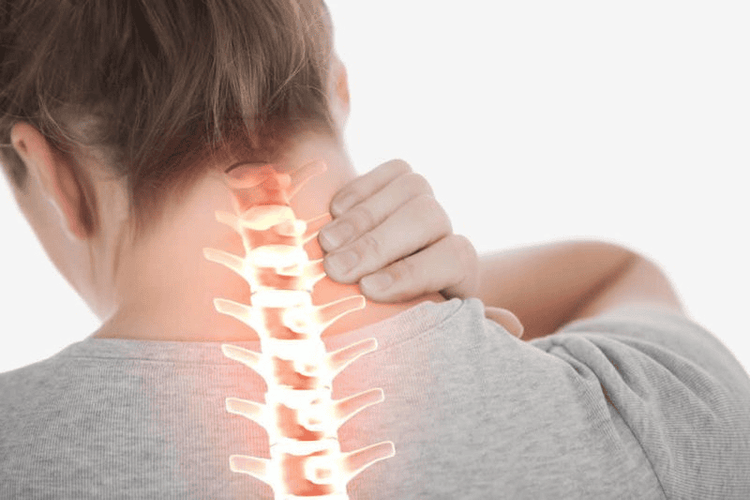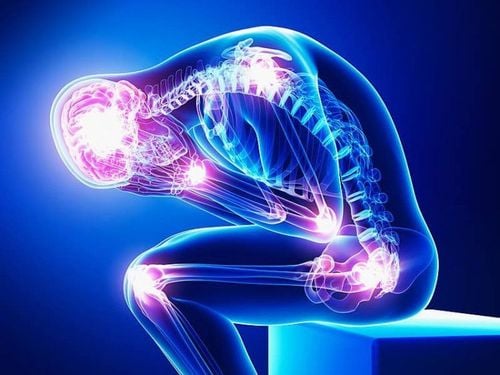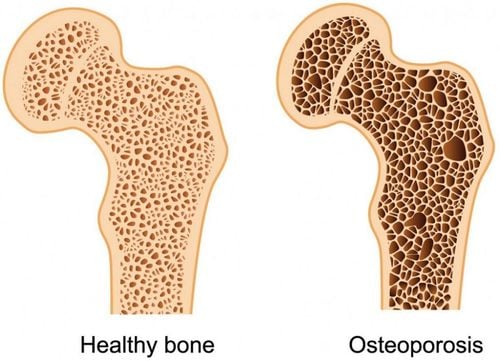This is an automatically translated article.
Neck pain is a common problem with many causes. In which, sleeping and living in the wrong position are the most common factors. You can prevent neck pain by making lifestyle changes, kicking bad habits, and exercising regularly to strengthen your muscles.
1. Overview of neck pain
The neck responsible for holding the head weighs about 11 pounds (almost 5 kilograms) - the same weight as a bowling ball. The neck consists of the bone at the top of the spine, along with the muscles and ligaments, that support the head throughout the day. This requires the neck to be balanced.
More than a quarter of adults in the United States have a sore neck. This condition is usually not a symptom of a more serious health problem.
If your neck hurts, you may also notice other symptoms including:
The pain is made worse by keeping your head in an unusual position while working on the computer, driving, or doing other things. other work Tight or tight muscles Difficulty moving neck or head Headache.
2. Causes of neck pain
Many factors can cause neck pain, including:
Poor posture Repetitive head and neck movements Bad sleeping habits Grinding teeth Carrying heavy bags on your shoulders Pinched nerves Playing sports or other trauma Car accident Arthritis Infection Tumor Fracture or collapse of the vertebrae, possibly related to osteoporosis Disc herniation Fibromyalgia Spinal stenosis.

Thoát vị đĩa đệm là một trong những nguyên nhân gây đau cổ
3. Diagnosis of neck pain
See a doctor if neck pain becomes severe, does not respond to treatment, gets worse over time, or is accompanied by numbness, weakness, tingling, and pain in the arms and legs.
Your doctor may ask you the following:
When did the pain start? Do you have a history of injury? Do you have numbness or weakness in your arm or hand? Does neck movement make the pain worse or better? Does coughing or sneezing aggravate the pain? Medical facilities also have a variety of tools to find problems, including X-rays, MRIs, CT scans, EMGs (electromyography), or blood tests.
4. Treatment of neck pain
Treatments may include muscle relaxants, physical therapy, wearing a neck brace, or stretching. In rare cases, you may need a cortisone injection or even surgery. With treatment, your neck will usually be free of pain within a few days.
Use medicines such as acetaminophen , aspirin or ibuprofen that are effective pain relievers. Apply an ice pack to your neck for the first 2-3 days to help reduce swelling. Then, use moist heat, like a hot shower or a warm washcloth, to help relax your muscles. There are also exercises you can do at home (or in front of your computer at work) to gently stretch your neck muscles. For example, roll your shoulders back and forth in a circle, press your shoulder blades together and hold for a few seconds, slowly turning your head from side to side. You can also see a doctor for chiropractic and chiropractic care, or a specialist in neck massage and acupuncture for short-term pain relief. SEE ALSO: Exercises to mobilize the cervical spine

Sử dụng các loại thuốc có tác dụng giảm đau để điều trị đau cổ
5. Prevent neck pain
Adjusting the living posture will have the effect of overcoming neck pain. Specifically:
Sit or stand with your back straight, so that your shoulders, hips and head are in line. Adjust your chair or desktop so that the computer screen is at eye level, using an ergonomic keyboard and mouse. Take frequent breaks to stand up and stretch. Consider setting an alarm to correct your posture while working or driving for long periods of time. Do not clip the phone between your ear and shoulder. Instead, use speakerphone or a headset if you can't hold the phone to talk. Limit the amount of time you look down at your smartphone. It is best to give up smartphone addiction, staring at the phone for many hours. Avoid carrying heavy bags with one shoulder strap. Limit driving for long periods of time. If you must sit for a long time behind the wheel, you should adjust the seat and use an extra neck pillow for the most comfort. Additionally, not smoking or quitting smoking can also help prevent neck pain. If your neck hurts when you wake up in the morning, try a better pillow. Some people find a pillow that is relatively flat or specially designed for neck support to be helpful. Lying on your back or on your side instead of on your stomach also gives the muscles and ligaments in the neck much-needed rest. You should also consider using a firmer mattress and wearing a mouth guard if you have a habit of grinding your teeth at night. Relaxing before bed is also a good way.
Stress can cause you to strain the muscles in your neck, so limiting stress can help treat and prevent neck pain. You can choose to relax in many ways, including listening to music, meditating, going on vacation, spending time on your own hobbies...
Regular exercise can help increase muscle strength to prevent injuries, improve posture to relieve and prevent neck stiffness, as well as relieve stress associated with aching neck pain.
Vinmec International General Hospital with a system of modern facilities, medical equipment and a team of experts and doctors with many years of experience in medical examination and treatment, patients can rest assured to visit. examination and treatment of shoulder and neck syndrome at the hospital.
Please dial HOTLINE for more information or register for an appointment HERE. Download MyVinmec app to make appointments faster and to manage your bookings easily.
Reference source: webmd.com













